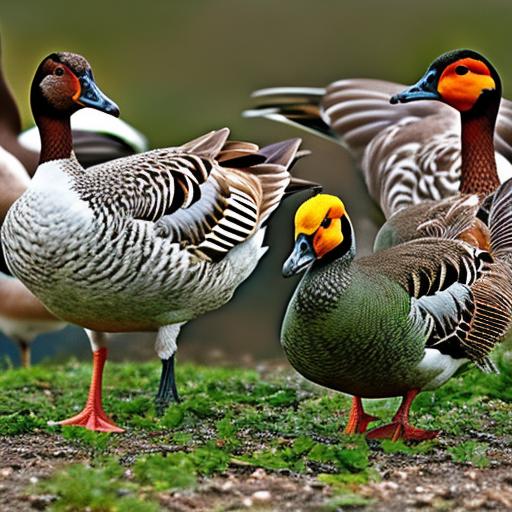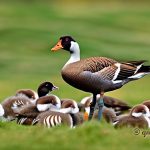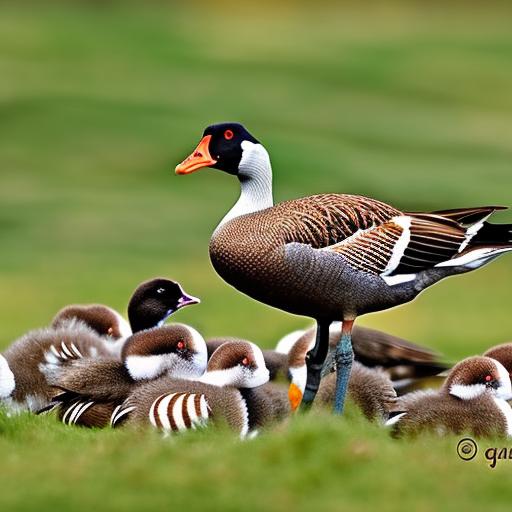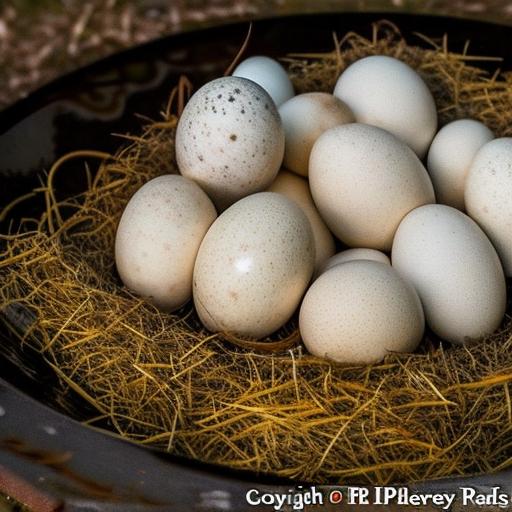Breeding geese in a coop can be a rewarding and profitable venture for farmers and homesteaders. Geese are known for their meat, eggs, and feathers, making them a valuable addition to any farm. Having a dedicated breeding coop for geese can provide numerous benefits, including increased breeding success, improved overall health of the geese, and easier management of the breeding process.
Key Takeaways
- Breeding geese in a coop can be a rewarding and profitable venture.
- Using a breeding coop for geese can provide a controlled environment for breeding and incubation.
- Choosing the right location for your breeding coop is important for the health and safety of your geese.
- Designing a functional and efficient breeding coop for geese involves considering factors such as ventilation, lighting, and space requirements.
- Essential equipment and supplies for a successful breeding coop include nesting boxes, feeders, and waterers.
Benefits of using a breeding coop for geese
One of the main advantages of using a breeding coop for geese is increased breeding success. Geese are known to be territorial and protective of their nests, so having a separate space for breeding can help reduce stress and increase the chances of successful mating and egg-laying. Additionally, a breeding coop allows farmers to control the breeding process by selecting specific pairs of geese to breed, which can help improve the quality of the offspring.
Another benefit of using a breeding coop is improved overall health of the geese. By providing a clean and controlled environment, farmers can minimize the risk of diseases and parasites that can affect the geese’s health. A breeding coop also allows for easier monitoring and management of the geese’s diet, ensuring they receive proper nutrition for optimal health and fertility.
Choosing the right location for your breeding coop
Choosing the right location for your breeding coop is crucial for the success of your geese breeding operation. The location should provide enough space for the geese to move around comfortably and have access to fresh air and sunlight. It should also be easily accessible for feeding, cleaning, and monitoring.
Safety is another important factor to consider when choosing a location for your breeding coop. The coop should be protected from predators such as foxes, raccoons, and birds of prey. It should also be secure enough to prevent the geese from escaping or being stolen.
Designing a functional and efficient breeding coop for geese
When designing a breeding coop for geese, there are several key elements to consider. Ventilation is crucial to ensure proper air circulation and prevent the buildup of ammonia from the geese’s waste. Adequate lighting is also important to stimulate egg production and maintain the geese’s natural breeding cycle.
Nesting boxes are essential for geese to lay their eggs. The boxes should be spacious enough for the geese to comfortably sit and lay their eggs, and they should be lined with clean bedding material to provide a comfortable and hygienic environment for the eggs.
Essential equipment and supplies for a successful breeding coop
To ensure a successful breeding coop, there are several essential equipment and supplies that you will need. Feeders and waterers should be provided to ensure the geese have access to fresh food and water at all times. Bedding materials such as straw or wood shavings should be used in the nesting boxes to provide a comfortable and clean environment for the eggs.
Additionally, you may need tools such as a rake, shovel, and broom for cleaning the coop, as well as a thermometer to monitor the temperature inside the coop. It is also important to have a first aid kit on hand in case of any injuries or illnesses.
Feeding and nutrition requirements for breeding geese in a coop

Proper feeding and nutrition are essential for the health and fertility of breeding geese in a coop. A balanced diet that includes a combination of grains, greens, and protein is important to ensure optimal egg production and fertility.
Geese should have access to fresh water at all times, as dehydration can negatively impact their reproductive health. It is also important to provide them with calcium supplements, such as crushed oyster shells or limestone, to support eggshell formation.
Health and hygiene considerations for your breeding coop
Maintaining a clean and healthy breeding coop is crucial for the well-being of your geese. Regular cleaning of the coop, including removing waste and replacing bedding material, is important to prevent the buildup of bacteria and parasites.
It is also important to monitor the geese for any signs of illness or injury. Common health issues in geese include respiratory infections, foot problems, and parasites. Regular veterinary check-ups and vaccinations can help prevent and treat these issues.
Breeding and incubation techniques for geese in a coop
Breeding and incubation techniques are important for successful reproduction in geese. Geese are known for their monogamous behavior, so it is important to pair them up properly for breeding. It is recommended to have one gander for every two or three geese to ensure successful mating.
Once the geese have mated, the female will lay her eggs in the nesting boxes provided in the breeding coop. The eggs should be collected daily and stored in a cool and humid environment until they are ready for incubation. Incubation typically takes around 28-30 days, and the eggs should be turned regularly to ensure proper development.
Managing and maintaining your breeding coop for optimal results
Managing and maintaining your breeding coop is essential for optimal results. Regular cleaning and disinfection of the coop will help prevent the spread of diseases and parasites. It is also important to regularly check the condition of the nesting boxes, feeders, and waterers to ensure they are functioning properly.
Regular monitoring of the geese’s health and behavior is also important. Any signs of illness or injury should be addressed immediately to prevent further complications. Providing a stress-free environment with plenty of space for the geese to move around will also contribute to their overall well-being and breeding success.
Troubleshooting common issues in a breeding coop for geese
Despite careful management, there may be some common issues that arise in a breeding coop for geese. One common issue is egg infertility, which can be caused by factors such as improper nutrition, stress, or age. To address this issue, it is important to ensure the geese are receiving a balanced diet and are not experiencing any unnecessary stress.
Another common issue is egg breakage during incubation. This can be caused by improper handling or inadequate humidity levels. To prevent this issue, it is important to handle the eggs with care and maintain proper humidity levels in the incubator.
Breeding geese in a coop can be a rewarding and profitable venture for farmers and homesteaders. By providing a dedicated breeding space, farmers can increase breeding success, improve overall health of the geese, and have better control over the breeding process. With proper planning, design, and management, a breeding coop for geese can be a valuable addition to any farm or homestead. So why not start your own breeding coop for geese today?
If you’re interested in learning more about breeding geese and creating the best breeding coop for them, you might find this article on “How to Care for Goslings” helpful. It provides valuable insights and tips on raising healthy goslings, ensuring their well-being from hatching to adulthood. To further enhance your knowledge on poultry farming, you can also check out this informative guide on “Converting a Shed to a Chicken Coop.” It offers practical advice and step-by-step instructions on transforming a shed into a suitable living space for your chickens.
FAQs
What is a breeding coop for geese?
A breeding coop for geese is a specially designed enclosure that provides a safe and comfortable environment for geese to breed and lay eggs.
What are the benefits of using a breeding coop for geese?
Using a breeding coop for geese can help to increase the success rate of breeding and egg-laying, as well as protect the geese from predators and other environmental factors.
What should I look for in a good breeding coop for geese?
A good breeding coop for geese should be spacious enough to accommodate the geese comfortably, have good ventilation, be easy to clean, and provide adequate protection from predators.
What materials are commonly used to build breeding coops for geese?
Breeding coops for geese can be made from a variety of materials, including wood, metal, and plastic. The choice of material will depend on factors such as cost, durability, and ease of maintenance.
How many geese can be housed in a breeding coop?
The number of geese that can be housed in a breeding coop will depend on the size of the coop and the breed of geese. As a general rule, each goose should have at least 10 square feet of space.
What are some common features of a good breeding coop for geese?
Some common features of a good breeding coop for geese include nesting boxes, roosting perches, a secure door, good ventilation, and easy access for cleaning and maintenance.
Meet Walter, the feathered-friend fanatic of Florida! Nestled in the sunshine state, Walter struts through life with his feathered companions, clucking his way to happiness. With a coop that’s fancier than a five-star hotel, he’s the Don Juan of the chicken world. When he’s not teaching his hens to do the cha-cha, you’ll find him in a heated debate with his prized rooster, Sir Clucks-a-Lot. Walter’s poultry passion is no yolk; he’s the sunny-side-up guy you never knew you needed in your flock of friends!







